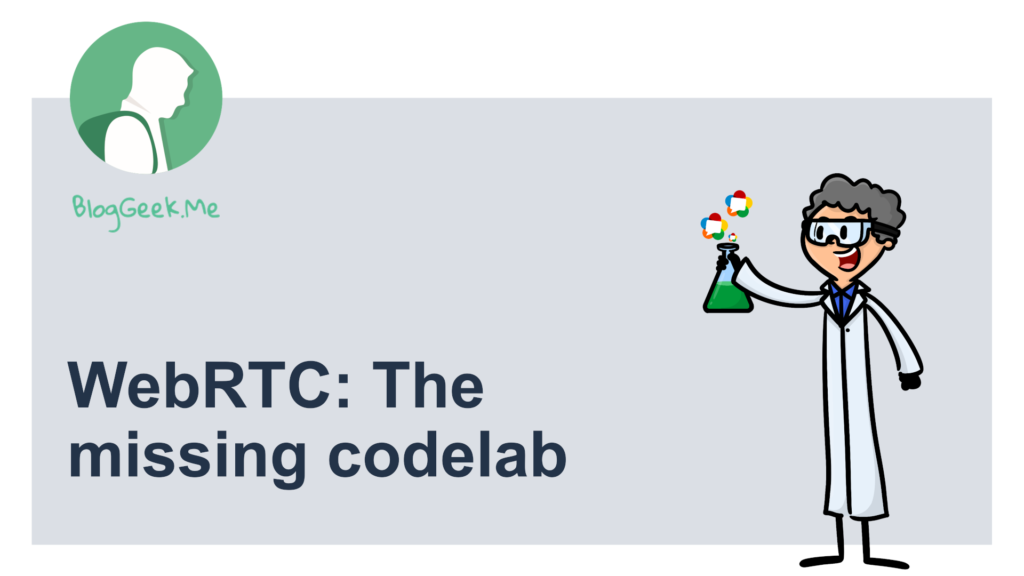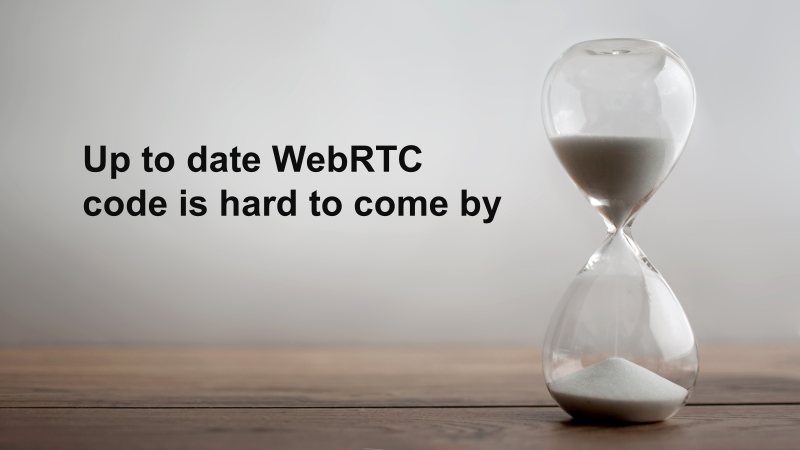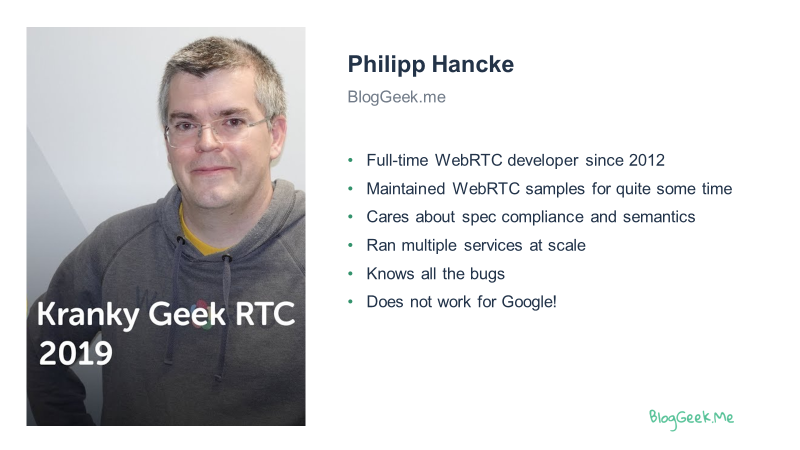I am launching a new WebRTC codelab course, created together with Philipp Hancke. This goes into the intricacies of WebRTC signaling and best practices.

The State of online WebRTC resources
Where should you start with WebRTC? There’s not enough information about it and at the same time too much information about it. Most of it is old and outdated. Needle in a haystack.

Sift through discuss-webrtc, stackoverflow and the W3C WebRTC mailing list? All great. But there’s no explanation besides pieces of code. It lacks context.
Read the spec and work your way from there? If you don’t fall asleep, you might just find that browsers aren’t exactly spec compliant yet anyways.
Books? None from 2020. None from 2019. Less than 10 in total. A handful.
How about online courses? There are a few on udemy and pluralsight, but they are also old and broken by now.
My own Advanced WebRTC Architecture course? While great, I purposefully haven’t gone through the APIs of WebRTC, understanding they change so frequently.
A codelab then? Sure. find one that works and explains signaling properly.
The way I see it, there are 3 types of WebRTC codelabs today:
- The outdated ones
- The broken ones
- The ones that sell you a managed streaming service
Enter Philipp Hancke
I’ve been working with Philipp here and there in the last couple of years. He is fun to work with and knows everything there is to know about WebRTC and the intricacies of its APIs along with the status of browsers.
Here’s a bit about him:

I don’t quite recall how, but we got to the point a couple of months back that it would make sense to create a solid WebRTC codelab that covers the signaling aspects of WebRTC. Simply because there is nothing out there that does the trick properly.
The missing WebRTC codelab
Fast forward to today, we have a codelab course for you:

The codelab has 4 parts to it:
- Github repo and course introduction module, both publicly available
- Codelab walkthrough. Over 2 hours of recorded lessons covering the source code and explaining all you need to know to grok it
- Exercises. We’ve started creating useful exercises on the codelab. These include the challenge, the solution and the explanation. Along with the additional code for the solution and best practices
- Resources library. If you are new to WebRTC, this will come handy in closing some gaps for you. They are lessons from my other courses that fit nicely here
We’ve made sure the lessons aren’t boring by making them interactive. I’ll be there with Philipp, taking the part of the student asking questions. The intent is to try and get into his head, understand his thought processes. What do you gain out of it? You will understand why things are implemented that way and not only how.
WebRTC Codelab FAQ
You can enroll on the WebRTC codelab site. There you will also find details on the lessons.
Yes. The first introductory lessons are free for all to take.
The code itself can be found on github.
This codelab actually works ????
Seriously: this codelab is focused on WebRTC and isn’t limited to the use of Google’s Firebase. We made sure to provide a lot of explanations on the reasons behind the code and not only what the code is doing.
Also – there’s a Slack workspace and a chat widget you can use to ask questions during the codelab.
Not really.
The codelab is focused on signaling and WebRTC APIs. It is less concerned about media servers (people usually don’t develop their own media servers these days – they use available open source alternatives).
Check the WebRTC codelab syllabus to see what topics we touch in the codelab itself.
